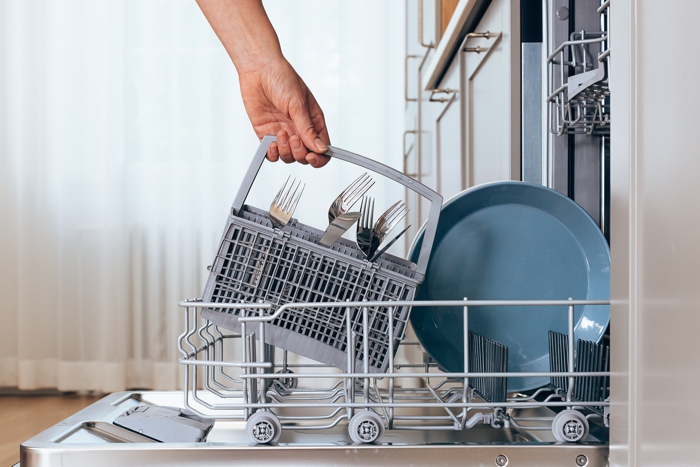
Tips for saving water
Responsible water use saves both money and the environment. Pay attention to your own water use. Think about what habits you can change to use less water.
Pay particular attention to hot water, which is about three times more expensive than cold water.
Hygiene accounts for about 45% of all water used. You can make the most significant water savings by paying attention to your own water use and making small everyday changes to your habits. The biggest impact comes from how long showers you take. During a 10-minute shower you may use up to 120 litres of water, 70 litres of it being hot water.
Washing
- Keep showers short and turn off the shower while soaping.
- Replace the shower head with a water-saving model that lowers water pressure.
- Reduce the number of times you wash your hair, if possible.
- Collect any water that spills while you wait for the shower water to warm up and use it to flush the toilet or in the sauna.
- Make sure children learn to wash quickly and don't stay in the shower for long periods.
- Take a shower instead of a bath. A bath uses five times more water than a shower.
- Turn off the tap while you brush your teeth.
Kitchen
- If you have a dishwasher, avoid washing dishes by hand. Modern dishwashers use only about 9 litres of water per wash.
- Avoid unnecessary rinsing of dishes before putting them in the machine.
- If you wash dishes by hand, wash them in the sink, not under running water.
- Save the water used for cooking eggs or potatoes, use it to water flowers and plants.
- Use one-pot recipes often, less dishes are needed and less energy is used.
- Keep a water jug in the fridge and fill your glass from it. This way you don't have to drain the tap and wait for cold water.
- Put the water you use to good use for other purposes. For example, if you rinse your biowaste bin, you can use the water to water the plants in your garden.
Laundry
- Wash full loads of laundry.
- Air dry clothes and extend wash intervals.
- Choose a shorter, cooler wash cycle for lightly soiled clothes.
- Use water filtered by the clothes dryer for washing floors.
Water fixtures
Pay attention to leaking water fixtures. Report leaks to your landlord or, in a detached house, repair or replace broken fittings with new ones. Even small leaks are worth reacting to, as they not only increase water consumption but also pose a high risk of water damage.
If a tap is leaking at 0.5 dl per minute, you are wasting 500 litres of water per week. The leaking water may also be hot water, which consumes energy.
- Check the condition of water fixtures, maintain and service them.
- Check the hand shower in the toilet, leaks are common.
- Install an aerator in the kitchen faucet to reduce wasted water.
- Look for leaks in the kitchen, especially from the sink or dishwasher.
- Replace the shower head with a water-saving model.
- Choose a water-saving model when you replace the dishwasher or washing machine.
- Install aerators or "flow restrictors" to taps; children in particular tend to open the taps fully.
Water consumption
- Monitor your water consumption from your water bill or with an apartment-specific water meter installed in new and renovated houses.
- If you have a smart water meter, water consumption is even easier to monitor online (Vesitili).
- Find out what is causing the increase in water use, so you can detect hidden water leaks and react to increased water use.
- Introduce technical water-saving solutions, such as non-contact taps and flow restrictors to help save water.
- Adjust the settings of the water heater to the right values, 55°C water is safe to use and heated in an energy-efficient way.
Source: Motiva
Useful energy and water saving tips by Motiva >> (pdf, fi-swe-eng)
Päivitetty 15.01.2025

